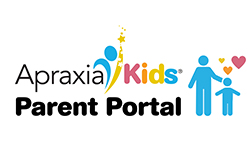In the United States, speech-language pathologists (SLP) are certified by the American Speech Language and Hearing Association (ASHA). Once the individual has successfully completed a Master’s degree in Speech Pathology, Communication Disorders and Sciences, or another relevant program; passed a national exam; and successfully completed a supervised clinical fellowship year, the professional is considered a Speech Language Pathologist (SLP) and is eligible for a “certificate of clinical competence.” (CCC-SLP) The credentials on this professional’s business card would include something like: M.S., CCC-SLP or M.A., CCC-SLP or another Master’s degree designation with the CCC-SLP. If the person does not have the CCC-SLP after their name they may not be a certified speech-language pathologist. In Canada, the professional organizations are called “SAC” (ENGLISH) / “OAC” (FRENCH) and their credentials look different depending on where they live.
When SLPs leave their training programs they are, for the most part, generalists. That means they have learned the basics required of the profession across the span of many types of disorders and age ranges. Some SLPs will then begin to “specialize” in age populations, such as child or adult related speech and language disorders. They may also start to take a particular interest in types of speech problems within the age group. For example, an SLP might take a particular interest in adults who have speech and language problems related to traumatic brain injury. Or a speech clinician may take a real interest in the area of stuttering/fluency in children. The professional will seek out additional training, on their own or with the support of their employer. A priority for that SLP will be keeping up with the published research on their specialty interest area. That professional may begin to see more children or adults on their caseload who have that particular issue because their employer or supervisor knows of their interest. Over time, that SLP has become more knowledgeable and more skilled because he/she has taken advantage of more education specific to the disorder; they have continually studied the research; and they gained skills by directly working with the population. So it is with SLPs who have experience and expertise with Childhood Apraxia of Speech.
It is recommended that, when possible, a child with apraxia of speech receive their speech therapy from a highly experienced, certified SLP. In their CAS Position Statement, the American Speech Language Hearing Association (ASHA) suggested that diagnosis and treatment should be done by an SLP with “specialized knowledge” in childhood motor speech disorders like apraxia of speech. Unfortunately, such individuals are not readily available in all cities or towns or all regions. However, less specialized SLPs can also be very excellent choices if they are eager and committed to learning more about CAS, attending training opportunities, and/or possibly receiving consultation from a more experienced colleague.
Use the Apraxia Kids SLP Directory to help find a therapist near you who has demonstrated some knowledge and/or experience in evaluating and treating children with CAS:
The Apraxia Kids Website also has Resource Guides to find a university speech and hearing clinic in your state that may have someone with expertise in CAS to supervise students providing evaluation and therapy services. You can also reach out to SLPs in the directory who are located outside of your area to see if they are willing to collaborate with a local therapist and/or provide teletherapy services.
QUESTIONS YOU CAN ASK POTENTIAL SLPS
- What type of training do you have in Childhood Apraxia of Speech and where did you get it?
- What is your experience in evaluating and diagnosing children for CAS?
- What is your experience with treatment of CAS? How many children have you served? What age range have you previously served?
- What is your approach to therapy for children with CAS? Specifically, how is therapy for my child going to be different than that for a child with a different speech diagnosis?
- How successful has your therapy approach been for children with CAS?
- If you do not have very much training/experience with CAS, do you know someone who can be a resource to help you provide appropriate treatment? Are you willing to engage in additional training to increase your knowledge?
- What experience do you have with augmentative and alternative communication (AAC)?
- How will you include me in my child’s therapy process?
Special NOTE: Research is demonstrating that to improve speech production in children with CAS, the therapist needs to be working directly, carefully, and specifically on SPEECH. If you observe that your child’s therapy does not involve your child making and being encouraged to make multiple repetitions of words or phrases, this may be a sign that the SLP is not experienced with appropriate therapy techniques. Please remember, most children with apraxia of speech have other speech and language concerns in addition to the “apraxia” part. Communicate with your child’s speech-language pathologist so you understand what aspect of your child’s speech, language or communication issues are “primary” (most problematic) right now and the rationale for what they are working on.
You have a perfect right to ask a potential speech-language pathologist any of the questions listed above. You are your child’s best advocate and assuring that your child receives appropriate therapy is critical to their ultimate success.
Updated November 2021
